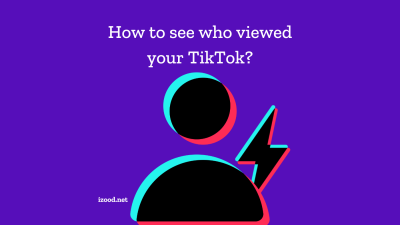What are NFT games?
NFT games, or non-fungible token games, are a groundbreaking new form of entertainment within the blockchain ecosystem. They merge the excitement of gaming with the financial benefits of cryptocurrency. Each unique token in these games represents a distinct item or character, with its value dictated by rarity, usability, and the game’s internal economy.
The concept behind NFT games takes a different approach compared to traditional games. In most conventional games, players invest time and money to earn rewards or achieve higher levels, without any real-world financial gain. However, in NFT games, players have the opportunity to earn tangible rewards in the form of crypto assets that can be traded or sold in real-world markets.
In essence, NFT games offer a new paradigm where gaming is not just an expenditure of time and resources, but an investment. The more you play, the more you can potentially earn. This revolutionary approach has piqued the interest of gamers and investors worldwide, leading to a surge in the popularity of NFT games.
How do blockchain games work?
Blockchain games, like NFT games, operate on distributed ledger technology. This means that all transactions within the game are transparent, immutable, and decentralized, with no central authority controlling the game’s economy.
When you play a blockchain game, every action you take, every item you acquire, and every character you develop is recorded on the blockchain. This creates an unalterable history of your gameplay that verifies your ownership and achievements.
One of the most significant aspects of blockchain games is the ability to own in-game assets truly. In traditional games, all the progress and items you have are tied to your account but are ultimately owned by the game’s developer or publisher. However, in blockchain games, thanks to the power of NFTs, players have actual ownership of their in-game assets. These assets can be transferred, traded, or sold independently of the game, often leading to substantial real-world profits.
Advantages of play-to-earn games
Play-to-earn games are not just about fun; they offer several advantages that distinguish them from traditional gaming. One of the significant benefits is the opportunity to earn real money. In play-to-earn games, the time and effort you invest can potentially yield profitable returns. Whether it’s through the sale of rare NFTs, winning competitions, or trading in-game assets, there are numerous ways to make money.
Another advantage is the sense of true ownership. In these games, you’re not just borrowing your character or items from the game developer; you own them. This ownership is not limited to the confines of the game either. You can sell your assets on various marketplaces, trade them with other players, or even use them in other compatible games.
Finally, play-to-earn games are typically built on blockchain technology, which ensures transparency and security. All transactions are recorded on the blockchain, ensuring that all trades, sales, and purchases are secure and immutable.
Popular NFT games in the market
Several NFT games have gained significant traction in the market due to their unique gameplay and lucrative earning opportunities. Some of the most popular ones include Axie Infinity, CryptoKitties, Decentraland, and The Sandbox.
Axie Infinity is a game based on Ethereum where players breed, raise, battle, and trade fantastical creatures called Axies. The game has become a sensation, especially in developing countries where players have found a substantial source of income.
CryptoKitties is one of the first and most well-known NFT games. In CryptoKitties, players collect, breed, and sell virtual cats. Each cat is unique and represented as an NFT, which can be bought and sold on the game’s marketplace.
Decentraland and The Sandbox are virtual worlds where players can buy land, build structures, and interact with other players. Both games use NFTs to represent ownership of land and other assets, creating a virtual real estate market. Looking for a play-to-earn game on mobile? Check out Chainplay list of best mobile NFT games now.
Understanding the mechanics of play-to-earn games
Play-to-earn games operate on the principle that players should be rewarded for their time and effort. This is achieved through various mechanics, including farming, battling, trading, and more.
The most common mechanic is farming, where players perform certain actions to earn rewards. This could involve collecting resources, completing tasks, or breeding characters. These rewards typically come in the form of NFTs or the game’s native cryptocurrency.
Battling is another common mechanic, particularly in games like Axie Infinity. Players pit their characters against others in battle, with winners receiving rewards.
Trading is a crucial aspect of play-to-earn games. Players can trade their in-game assets with others, often for the game’s native currency or other assets. This creates a dynamic economy where the value of assets fluctuates based on supply and demand.
How to get started with play-to-earn games
Getting started with play-to-earn games involves a few steps. First, you’ll need to set up a digital wallet to store your cryptocurrency and NFTs. Wallets like MetaMask or Trust Wallet are popular choices.
Next, you’ll need to purchase some cryptocurrency. The type of crypto you need will depend on the game, but Ethereum is a common choice for many NFT games. Once you have your crypto, you can use it to buy your first NFTs or pay for transaction fees in the game.
Once you’ve set up your wallet and acquired some crypto, you’re ready to start playing. Choose a game that suits your interests and start exploring. Remember, the goal is to earn rewards, so look for opportunities to farm, battle, and trade.
Risks and challenges in play-to-earn blockchain games
While play-to-earn games offer many benefits, they’re not without their risks and challenges. One of the significant risks is the volatility of the crypto market. The value of your in-game assets may fluctuate wildly, which can affect your potential earnings.
Another risk is that the game itself may not be successful. If a game fails to attract a substantial player base or the developers stop supporting it, your in-game assets may become worthless.
Finally, like any investment, there’s a risk of loss. It’s possible to lose money in play-to-earn games, especially if you invest heavily in in-game assets that decrease in value.
Conclusion
Play-to-earn blockchain games, especially NFT games, represent a significant shift in the gaming industry. They offer a unique blend of entertainment and investment, allowing players to earn real-world value from their gaming activities.
However, like any investment, it’s crucial to do your research and understand the risks involved. If you’re interested in exploring this exciting new world of gaming, start your play-to-earn journey today.











